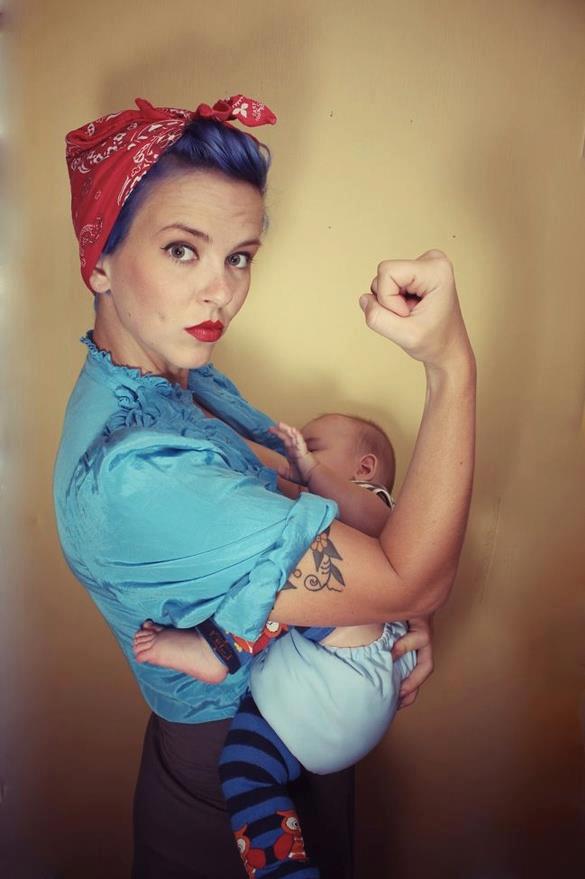
The World Health Organization (WHO) recommends exclusive breastfeeding for the first six months of a baby’s life for optimum growth and health of baby. Babies who are given feeds other than breast milk are known to have lesser immunity, more illnesses and require more hospitalizations.
Surprisingly despite various initiatives by our government, not even half the babies are exclusively breastfed. No doubt, India has one of the highest rates of malnutrition and infant mortality rates. Of the various reasons why mothers are unable to breastfeed less than 5% are medical reasons which include failure of lactation or medical condition of the mother. Then why are rates of breastfeeding so low? The answer lies in a lack of knowledge and misconceptions about breastfeeding. Dr. Ashu Sawhney, Senior Consultant & Coordinator, NICU and a Pediatrician, Jaypee Hospital, Noida tells us about the socio-cultural beliefs that are a major hurdle
Pressure on new mother to give top feed
How many times we have heard that baby is not chubby and advised to start formula feeds? Young mothers gradually start believing that their milk is not best for the baby and are pressurized to start animal milk or formula. Babies tend to take larger supplemental feeds, sleep longer and have fewer stools bolstering the false belief that breast milk is inadequate and less tolerated.
Traditional practices
Practice of giving honey to the baby soon after birth, ghutti for fat baby, and water to prevent dehydration are some of the practices that interfere with breastfeeding and harms the baby. Honey contains certain bacterial spores which harmless to us can cause severe fatal illnesses in babies less than 1 year. Ghutti may contain honey and various herbs which can disturb the immature intestines causing long-term problems. Giving water is also not safe because it can cause infection and also fills baby’s tummy limiting their feed. These have to be discouraged by educating not only the parents but society as a whole.
Embarrassment about feeding in public
This is not surprising in our country where cases of crime against women are rampant despite being fully covered. Feeding the baby even under dupatta or shawl feels uncomfortable to mothers. Lack of areas designated for breast feeding in public eg. at parks, shopping areas, railway stations also discourage breastfeeding. Most mothers opt for bottle feeds when going out in public or traveling.

Working mothers
Indian law allows 6 months of maternity leave to allow mothers to exclusively breastfeed their babies for the welfare of mother and child. But some women have to start work earlier because of various reasons which interrupt breastfeeding invariably leading to formula or cow’s milk feeding. Though this problem can be solved with mothers using breast pumps and storing the milk to feed the baby in their absence and continuing breastfeeds when they are at home. Having a facility for crèche or providing areas for pumping and storing milk at workplaces can help to promote breast milk feeding for babies.
How can we overcome these social and cultural hindrances?
Society as a whole needs to be taught the benefits of breastfeeding exclusively and also educate about wrong practices. Women are more likely to breastfeed if they get increased support and confidence from within the family. The role of mother-in-law/ senior women in the family in promoting breastfeed is very important.
- Following are ways mother in law can help the new mother to breastfeed
Encourage the daughter in law to breastfeed within an hour of the baby’s birth - Help her with correct feeding techniques and maintain hygiene
- Give her the confidence that breast milk is sufficient even if the baby needs feed very frequently.
- Making sure honey, ghutti, water is not given to the baby.
- Understand her to need for company or privacy during breastfeeding.
- Discouraging traditional practices which are harmful to breastfeeding.
- Breastfeeding is a most natural act and should be encouraged and appreciated. India has a strong family-oriented culture. The immediate family members are the best help a mother can get.
Beside the above, teaching about breastfeeding advantages should be begun at school level to sensitize both girls and boys about its benefits. Initiatives by the government, NGOs, hospitals, physicians are required to promote exclusive breastfeed and this will have a major impact on decreasing malnutrition in our country.














